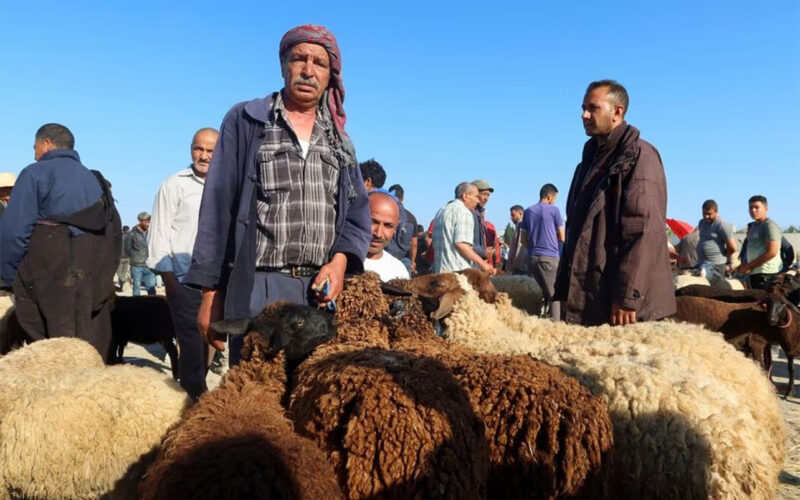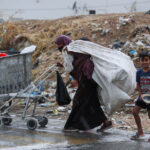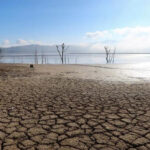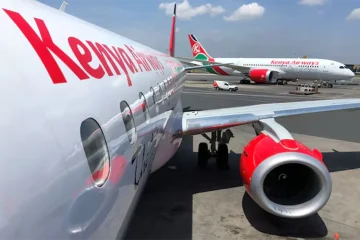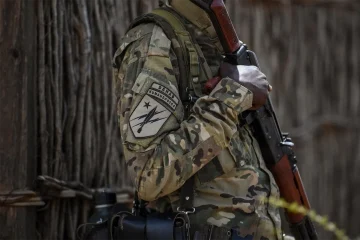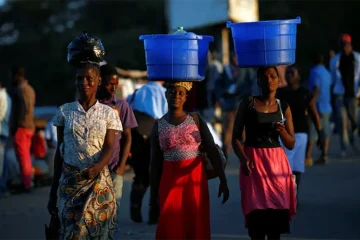JIHED ABIDELLAOUI
TUNISIANS hoping to buy a sheep to slaughter for Islam’s Eid al-Adha festival next week are facing much higher prices because of a drought, adding to public anxiety at an economic crisis that looks set to worsen.
Small flocks of sheep are a common sight in Tunisian cities and towns in the run-up to the annual festival, feeding on highway verges and in empty lots as farmers bring in their animals from the countryside for sale.
But the bleating that echoes across city neighbourhoods as families fatten animals on rooftops or in gardens may be heard less frequently this year as prices have risen by around a quarter at a time when many Tunisians are already struggling.
“The economic situation is very bad. Everything has doubled in price and my salary can’t get me through the month,” said Ridha Bouzid, for whom buying his family a sheep for Eid was so important he was considering taking out a loan to afford one.
Still, as he compared the 900 dinars ($290) asking price for a sheep to the 750 dinars he had paid for a similarly sized animal last year, he worried about the impact on his finances.
“My salary is just 950 dinars a month. What will be left of it?” he said.
Nearby in Borj El Amri market, Khaled Frekhi was inspecting sheep with his young daughter hoisted up on his shoulder and had decided to forgo the expense this year. “We can’t afford these prices,” he said.
DROUGHT
Tunisia’s economy was in bad shape even before the COVID pandemic caused further damage in 2020 and with state finances on the brink of collapse, the government cannot help counter global inflation.
For farmers, a disastrous harvest because of failed rains has made the economic problems far worse. Unable to cope with higher costs, many dairy farmers sold their cows last year, causing a shortage of milk for months.
In Borj El Amri, farmer Nabil Rhimi, 38, said the drought had entirely destroyed his crop of wheat and barley and left him needing to buy animal feed for his sheep – but barely able to afford an increase in fodder costs.
He has already decided to sell 200 of his 350 sheep because he cannot afford to feed them. “If the situation gets worse I’ll sell them all,” he said.
Rhimi is not alone. Farmers Union official Khaled Ayari said Tunisia had produced 1.2 million sheep for Eid in 2022 but only about 850,000 this year. The union has rejected imports of sheep to protect farmers, he said.
Haithem Jouini, a young farmer who inherited his flock when his father died, said he constantly thought about migrating. “I can’t live like this … my heart is broken. Why can’t the government help us? People are suffering.”

